
As we documented Autism New Jersey’s history, we didn’t have to look too far into the past to find sources of hope. The organization, led by Executive Director Suzanne Buchanan, has been at the forefront of progress in autism treatment, safety and services over the past decade.
In January 2020, Autism New Jersey staff cheered as Governor Phil Murphy signed into law a bill requiring Applied Behavior Analysis (ABA) practitioners to hold a license with the state. Just months later, due to Autism New Jersey’s continued advocacy, Medicaid/NJ FamilyCare began covering medically necessary ABA therapy for children under 21. The benefit changed the treatment landscape for thousands of New Jersey families, helping to rehabilitate systemic inequities in autism treatment and remove a substantial healthcare barrier for low-income families.
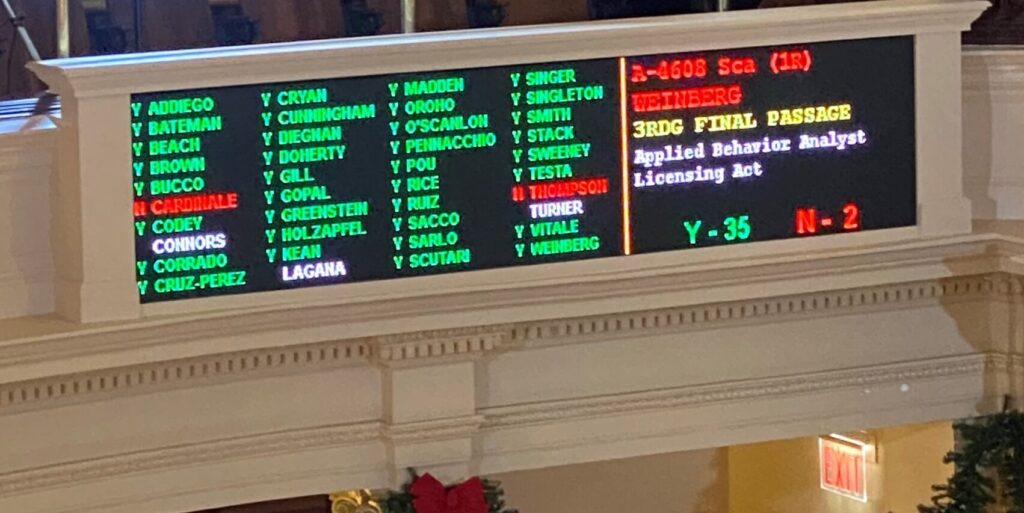
“For years, we heard daily from families who contacted our helpline understandably desperate for this coverage to help their sons and daughters with autism,” Buchanan said when coverage went live on April 1, 2020. “We are thrilled to celebrate this advocacy victory with the community.”
Autism New Jersey was long a proponent for evidence-based treatments, and under Buchanan’s watch, the organization’s flagship service, its 800.4.AUTISM Helpline, professionalized, adding a former lawyer as its director and building out a robust online knowledge base and referral services. The modern-day helpline echoes the organization’s early years, when parents — who were navigating the world without the ease of the internet — would call in desperation, looking for any treatment to help their child.
Frantic Calls
Autism New Jersey experts say that families still face a shortage of services and encounter long wait times, especially for adult services like group homes. However, due to increased awareness and more universities training behavior analysts and other clinicians, New Jersey families as a whole fare better than those from the 1960s and 1970s.
Still, it’s impossible to write a history of the decade spanning 2015 to 2025 without mentioning the Coronavirus pandemic. New Jersey was among the first states to identify Coronavirus cases and subsequent deaths, and it was among the first to go into lockdowns, closing schools and shuttering workplaces, including those designed to support the autism community.
“The pandemic was really, really hard because of the social isolation and the level of uncertainty,” said Kelly Milazzo, president of Greenwich Autism Alliance, and mother of a 28-year-old son with autism.
Lessons Learned
When possible, therapies and school were online; but parents found themselves making impossible choices between working and taking care of their autistic children. When vaccines were developed, the autism community faced another barrier: obtaining the shots. Individuals with autism often have sensory preferences and have a tough time tolerating touch, bright lights or unfamiliar situations. Doctor’s offices and mass vaccination sites were not an option for many.

So, Autism New Jersey pivoted, offering a special needs vaccine clinic in Holmdel, sometimes vaccinating individuals from the comfort of their cars.
It was the first step of many for the organization’s Healthcare Initiative that now works with dentists, pediatricians and all healthcare providers to make facilities and protocols more autism-friendly and provide timely diagnoses to those who need it.
Milazzo says the advocacy of Autism New Jersey and similar organizations have made a noticeable difference in everyday life.
Increased Awareness, Better Law Enforcement Relations
Ten years ago, when her son wanted to go to the mall, Milazzo would shadow him, allowing him the independence to interact with other shoppers and storekeepers, but stayed nearby in case she needed to swoop in and provide support in tricky social situations.
Then, it was more common for people in public to stare at her son, or to express concern when he would talk to himself.
“Now, when we are in a store, I feel like people just get it,” she said.
Plus, she’s noticed a steady uptick in restaurants, recreational activities and entertainment venues offering accommodations and marketing sensory-friendly offerings. Milazzo pointed to campaigns like Autism New Jersey’s annual April Ambassador Program as well as cultural touchpoints, like Netflix’s “Love on the Spectrum” which is now in its third season, for the positive societal shifts. She also said the efforts of Autism New Jersey’s policy team and Law Enforcement Initiative on a statewide level have created trickle-down effects in communities across the state.

Following Autism New Jersey’s recommendations, her local police department has begun hosting meet-and-greets between the special needs community and first responders. And a few years ago, Milazzo picked up a blue envelope from the Clifton Police Department, which drivers with autism can use to communicate their accommodation needs with officers during routine interactions, like traffic stops.
The increased awareness among law enforcement agencies over the past few years, and the tangible tools like the blue envelope, have given Milazzo and other parents peace of mind.
Their stories are inspiring. They remind us that despite current challenges — the overhaul of federal education policies, the Health Secretary’s claims about links between autism and acetaminophen, circumcision and vaccines; and a battle in Congress over Medicaid funding — the autism community has always found a way to make progress.
Long History
Over the past five months, we’ve explored five decades of Autism New Jersey — and in a broader sense, the history of our community at both a state and national level. We’ve seen parents, caregivers and families organize themselves to advocate for a better future for their children.
We’ve cheered the movement to de-institutionalize care for individuals with disabilities and empower them to instead live in communities with family, friends and opportunities for recreation, education and employment. We’ve learned about the nationwide advocacy that led to legislation mandating appropriate special education in public schools. And we have heard stories of parents insisting that state services and local school boards live up to their promises and legal obligations.
Our agency has celebrated everyday people, who when faced with challenges, rose up to become leaders. People like former Autism New Jersey Executive Director Nancy Richardson, a mom of two who diligently built an information network in the 1980s and 1990s to help parents connect to the few autism services available in New Jersey; lawyer Herb Hinkle, who held workshops in church basements and public libraries in the early 2000s to help parents assess their child’s Individualized Education Programs and secure proper support services; and self-advocate Chris Gagliardi, who faced his developmental challenges head on, learning to speak his own thoughts at the age of 18, land a job at Starbucks and attend college.
With 60 years of history behind them, and a bright future ahead, Autism New Jersey is celebrating with a new look, a new logo and the same unwavering commitment to the state’s autism community.
As the staff looks toward the next 60 years, they lean on the stories of those before them. People like Richardson, Hinkle, Gagliardi and Milazzo — and the untold number of individuals with autism, parents, family members, professionals, legislators and everyday people, who stood under the Autism New Jersey banner. They envisioned a better, more autism-friendly state and then made it reality.
From all of us at Autism New Jersey, thank you so much for being a part of our story, and for trusting us with your stories. As we enter a new decade together, we are here to support you and advocate for you.
We’re always just a chat away.








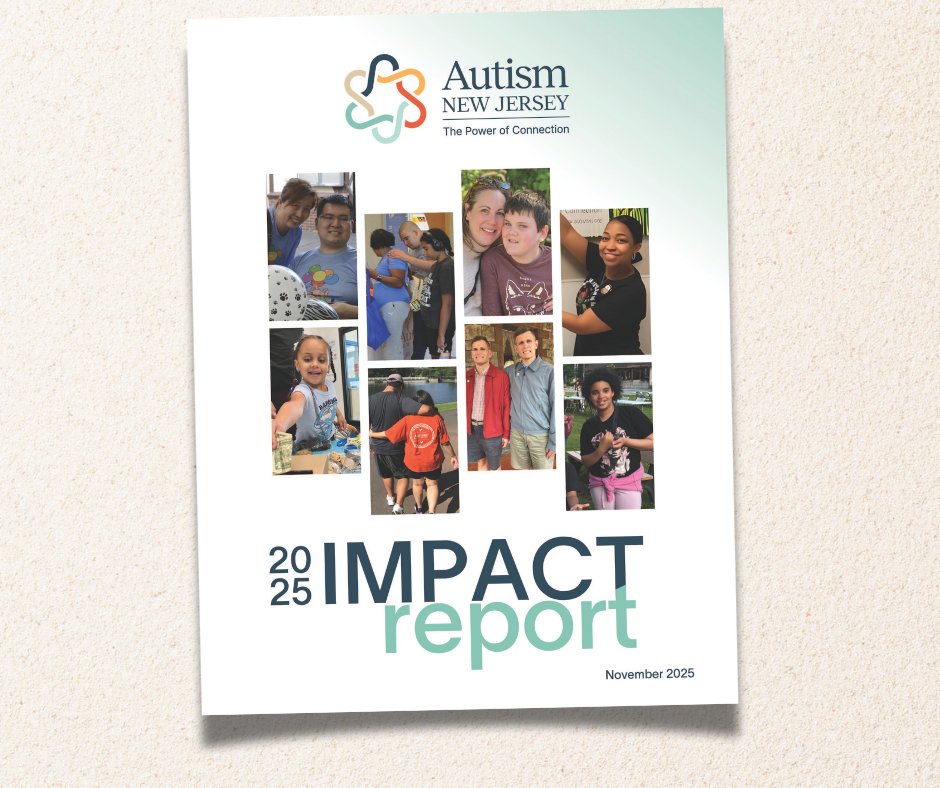




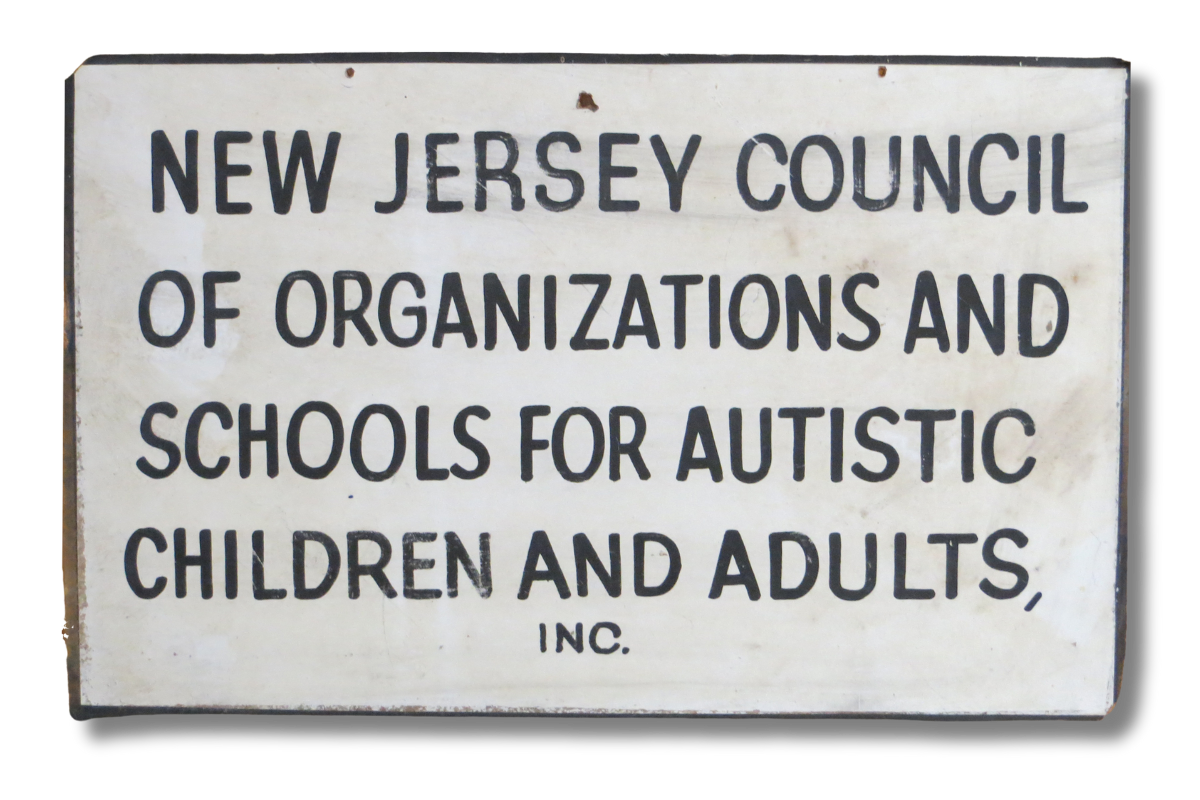
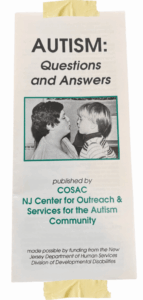 Autism New Jersey: The Second Decade 1975-1985
Autism New Jersey: The Second Decade 1975-1985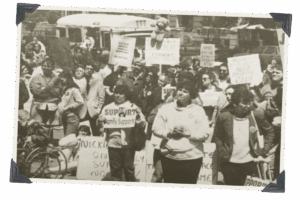 From ‘Rain Man’ to Real Change: How Advocates Transformed NJ’s Autism Landscape
From ‘Rain Man’ to Real Change: How Advocates Transformed NJ’s Autism Landscape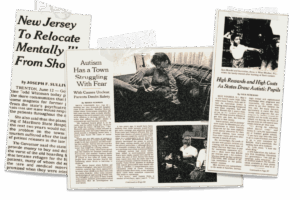 Breaking Barriers | How autism advocates rewrote New Jersey’s story for a new millennium.
Breaking Barriers | How autism advocates rewrote New Jersey’s story for a new millennium.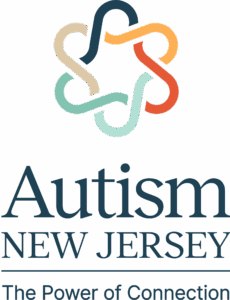 As we documented Autism New Jersey’s history, we didn’t have to look too far into the past to find sources of hope. The organization, led by Executive Director Suzanne Buchanan, has been at the forefront of progress in autism treatment, safety and services over the past decade.
As we documented Autism New Jersey’s history, we didn’t have to look too far into the past to find sources of hope. The organization, led by Executive Director Suzanne Buchanan, has been at the forefront of progress in autism treatment, safety and services over the past decade.